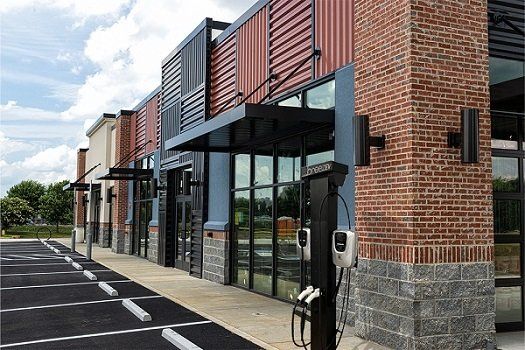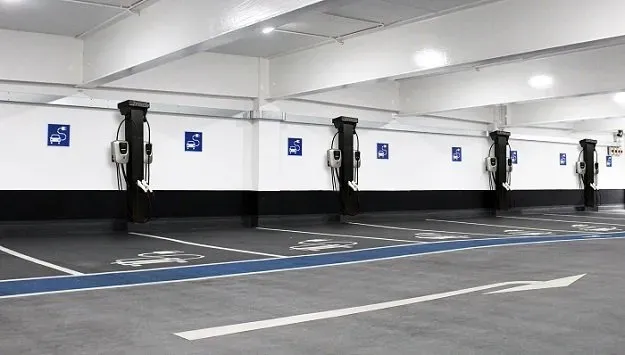How Long Does It Take To Charge an Electric Vehicle?
The amount of time necessary to charge an electric vehicle (EV) can be a deterrent for owners of gas-powered vehicles who are considering making the conversion to EVs. Even if people who currently own electric vehicles say that they don't mind the amount of time it takes for their vehicles to charge, it might be challenging to persuade those who are considering making the switch to alter their typical pattern of driving and using petrol. The amount of time it takes to charge is, in point of fact, contingent upon a variety of circumstances. Let's take a look at how long it actually takes to charge an electric car as well as how drivers may customize the charging process to best meet their own requirements.
How Much Time Does It Take to Completely Charge an Electric Vehicle?
The amount of time necessary to charge an electric car is significantly impacted by each and every component of the charging equipment. The amount of time required to fully charge an electric car is dependent on a variety of factors, including but not limited to the charging station and its power output, the charging capabilities of the vehicle, the size of the battery, the current charge level, and more. The equation becomes more complex with smart EV charging since it makes it possible to tailor when and for how long the car charges as well as when it charges. Explore in further detail the following aspects that contribute to the overall charging time:
Station for Charging Devices
It may take many days or only a few minutes to considerably charge a battery, depending on the type of power source being used to charge an electric vehicle. Charging stations for electric vehicles are normally classified as either level 2 or level 3, however you may charge your EV with any outlet, including the one in your home (albeit rather slowly). It usually takes around 40 hours for a standard household outlet, which is also frequently referred to as a level 1 charger, to fully charge an electric vehicle.
The majority of level 2 chargers can give around 15-25 miles of range per hour, which means that the majority of electric vehicles can be charged either over the course of the night or throughout the course of a regular work day. These are a wonderful alternative to have in either your place of employment or your home.
There is a large variety of power outputs available for level 3 chargers, and this is the stage at which the charging speed is increased to its maximum. Due to the fact that these chargers make use of direct current (DC) electricity and are significantly more expensive than other types of charging stations, they are normally only found in public charging infrastructure. An empty battery may be fully charged by some level 3 chargers in as little as thirty minutes. Many are already built to generate far more power than what today's electric vehicle batteries are able to accept, which bodes well for the future of incredibly rapid charging periods.
Battery Storage Capacity of Electric Vehicles
Batteries for electric vehicles are not all made equally. There is, in point of fact, a significant gap in the possible mileage ranges offered by various electric automobiles. Some of the more affordable electric vehicles have driving ranges that are adequate for the demands of the majority of drivers on a daily basis, while some of the more expensive models have ranges that are on par with or even better than that of many conventional gas-powered vehicles. The only catch is that the amount of time required to charge the battery increases proportionately with its capacity. On the other hand, the need for quicker charging options is growing with the capacity of batteries, which is a positive development. This takes us to another aspect of charge time, which is the capacity of the charger.
Electric Vehicle Charger Capacity
Even though the electric vehicle (EV) receives electricity from the charging station, the actual process of converting that power to the battery is carried out by a charger that is linked to the EV battery itself. Regardless of the type of power source available at the charging station, the process of recharging a large battery that is paired with a relatively low-capacity battery charger will take a significant amount of time. This is the reason why premium electric vehicles with huge batteries are generally combined with inbuilt battery chargers that are able to rapidly receive electricity from a power station and convert it.
Various Other Aspects
The amount of time it takes to charge an electric vehicle is determined by a number of factors, including the temperature, the time of day, and the required charge capacity. Charge times can be lengthened by temperatures that are extremely low (or extremely hot). In addition, because of the rise in traffic and the associated strain that it places on power networks, the process of topping off your tank might take longer depending on the time of day. Last but not least, the majority of EV manufacturers advise maintaining your battery within an ideal battery range to get the longest possible life out of it. This indicates that charging a battery to its maximum capacity is not always desired and frequently is not required. If a specific range is not required, this might assist minimize the amount of time needed to charge the battery.
How to Charge an Electric Vehicle to Meet Your Requirements
When you consider all of the many aspects that contribute to the amount of time it takes for an EV to charge, the question naturally arises: what do you want from your electric vehicle? As was noted before, the majority of individuals who currently possess an electric vehicle do not mind the amount of time it takes to charge their vehicle; in fact, many of them really appreciate the new way that gasoline is dispensed.
Imagine this: rather than rushing to the petrol station after work, where you will have to contend with traffic and battle with the grimy pump handles, you could simply plug your vehicle in at home and set it to charge at a time of day when the cost of electricity will be the cheapest. Additionally, you have the ability to program your car to charge based on the amount of daily range you require, which enables you to save money by just purchasing what you require. Or, if you're already late for work, you may plug in your car at the office and let it charge while you get things done there. This way, it will be ready to go when you get off work.
The last point of trepidation for some motorists: long-distance driving.
To reiterate, it is important for drivers who anticipate using their electric vehicle for long distances to make their buying decisions appropriately. It will take a little bit longer time to charge an electric car while on the road than it does for a gas-powered vehicle since electric vehicle ranges are expanding at a rapid rate, and their onboard chargers are improving to meet the larger batteries. Even better, you won't have to stand around and wait for your turn at the pump; instead, you can go to the toilet, grab something to eat, or relax while the charging station does its thing. The greatest news is that charging an electric vehicle continues to be far less expensive than filling up a petrol tank.
Leave A Reply
Search
Recent Posts







